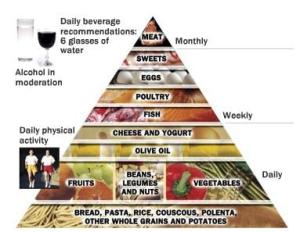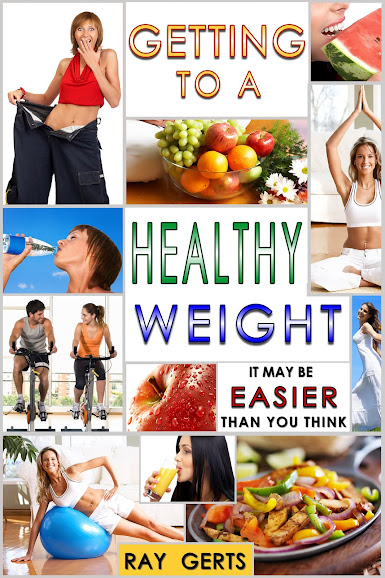Reblogged from MedicineNet.com. I wrote about this same subject in my last post and then I found this article that confirms my findings.
Unhealthy diets may have contributed to as many as 400,000 premature deaths from heart disease and strokes every year.
And, it’s not just the things you should be avoiding — such as salt and trans fats — that are contributing to these deaths. The excess deaths may also be caused by what’s missing in your diet — namely, nuts and seeds, vegetables and whole grains, the researchers said. I’ll also add that carrying the extra body fat is wearing out your body parts and straining your organs.
“Cardiovascular disease is the number one cause of death in the United States, killing more people in 2015 than any other cause,” said lead researcher Dr. Ashkan Afshin of the University of Washington in Seattle. He’s an acting assistant professor of global health at the university’s Institute for Health Metrics and Evaluation.
The study results suggest that nearly half of heart disease and stroke (cardiovascular disease) deaths in the United States might be prevented with improved diets, he explained.
Debates on dietary policies in the United States tend to focus on cutting out unhealthy foods and nutrients, such as trans fats, salt, and sugar-sweetened beverages. But this study shows that a large number of heart-related deaths may be due to a lack of healthy foods, Afshin reported.
Looking at deaths in the United States from heart and blood vessel diseases for 2015, the investigators found unhealthy diet choices and lack of eating healthier foods had a part in the deaths of more than 222,000 men and over 193,000 women. The study could not, however, prove a direct cause-and-effect relationship.
Low intake of nuts and seeds likely accounted for nearly 12 percent of deaths. Too few vegetables probably contributed to as many as 12 % of heart disease and stroke deaths. And, low intake of whole grains may have been responsible for more than 10 percent of those deaths. Too much salt likely accounted for 9 percent of deaths, Afshin said.
Samantha Heller, a registered dietitian, said, “If someone’s diet is low in nuts, seeds, fruit, fiber, whole grains and vegetables, then they are likely replacing those foods with less healthy options, such as deli meats, cheeseburgers, fried chicken, sodas, boxes of mac-and-cheese, sugar-sweetened beverages and other highly processed, junk, fast and prepared foods.” Heller is a senior clinical nutritionist at NYU Langone Medical Center in New York City.
“A crummy diet means the body has to work at Mach-10 speed to battle the onslaught of biochemical, physiological and inflammatory consequences. No wonder so many of us complain about being exhausted all the time and suffer from very serious and oftentimes preventable cardiovascular diseases,” she said.
A more plant-based, whole-food approach to eating reduces internal inflammation, which in turn helps protect and heal “gunked up” arteries and an overworked heart. It also enhances the immune system, improves gastrointestinal and brain health, and boosts energy, Heller explained.
Heller recommends simple swaps, such as sliced avocado, tomato, and hummus on whole grain bread instead of a ham and cheese sandwich; a veggie burger topped with salsa instead of a cheeseburger; brown rice, vegetable-edamame paella instead of mac and cheese; a salad pizza instead of a pepperoni pizza. Grocery stores today have an extensive selection of healthy foods and even healthy, fresh meals in the deli section. There’s really no need to cook anymore. In fact, there’s little need to shop for groceries when you can buy fresh food ready to eat in the deli section. Buy bottled water, red wine, nuts, or seeds for a snack and your set.
I buy the basics: oatmeal with fruit in the morning, salads every day, prepared fresh meals with seafood or chicken, no fried food and no red meat, fruit, plant-based Protein Powder in the two-pound containers and plain Greek yogurt to make protein shakes for between meals and nuts, seeds and red wine for snacks and that’s it.
“The good news is it is never too late or too early to ditch unhealthy foods, dig into a plate of vegetables, legumes, fruits, nuts, seeds and whole grains, and watch how our bodies respond by getting healthier and happier,” Heller said.
Losing your body fat is the key to good health.
MedicalNews
Look for my podcast by searching “How Bad Do You Want To Lose Weight” on the podcast app that you use. You’ll see a piece of my book cover.
If you really want to lose your body fat look for my e-books at the websites listed below. You’ll get information on Healthy eating, exercise, and diet. Instead of spending hours on the internet reading dozens of posts, you can save time by picking up one of my e-books.
There are two e-books. “How Bad Do You Want To Lose Weight?” is available at all the online bookstores selling for $3.99. Go to any of the websites below and search the title to find my e-book. This book gives you all you need to lose weight without spending money on gym memberships, diet plans, or meal plans.
Look for my book. at Amazon.com, bn.com, iBooks, Kobo.com, Scribd.com, or Gardner Books in the U.K.
My new e-book is available on Smashwords.com and other online bookstores. Just type “getting to a Healthy Weight” in the search box at the top of the home page.










